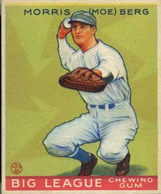...
Don't know about you, but my first reaction was a very deep unease at the direct-but-dismissive way Longo deals with his crime and his abandonment of efforts to pretend he is anything but a murderer. Thinking about it now as a long-time teacher of writing, I find that a strange strategy for someone who's trying to convince an audience of his credibility, good intentions, and seriousness.
But I think it works. By pointing out that he has nothing to gain because he is no longer making any pretense of innocence, Longo is able to keep his focus on the various broader issues related to the post-execution donation of inmates' organs. Most interesting to me is the question of coercion, alluded to briefly in this paragraph:
Aside from these logistical and health concerns, prisons have a moral reason for their reluctance to allow inmates to donate. America has a shameful history of using prisoners for medical experiments. In Oregon, for example, from 1963 to 1973, many inmates were paid to “volunteer” for research into the effects of radiation on testicular cells. Some ethicists believe that opening the door to voluntary donations would also open the door to abuse. And others argue that prisoners are simply unable to make a truly voluntary consent.
Here's where I think he soft-pedals a particular difficulty concerning consent. Rumors have circulated for decades that prisoners in other countries are routinely executed for their organs. It's unlikely that would happen here, but a more insidious possibility is that the opportunity to harvest a prisoner's organs would create more pressure to put people on death row. If Longo (and the other death-row inmates he says share his desire to donate) succeeds in passing his organs along, it's not hard to imagine that immense pressure would spring up to make post-execution organ donation not only possible but mandatory. After all, there is a huge demand for organs and death-row inmates are a ready source of relatively young organs that can be harvested under controlled conditions.
In the best of all possible worlds, I would completely support--and even salute--the desire of a death-row inmate to donate organs. The problem is that this is not that world, and situations like this are tailor-made for not just abuse but well-intentioned misuse.
How long would it be before there was pressure to increase the supply of death-row inmates and the speed of their executions because the need for organs is so desperate?
And let's not forget that organ transplants are very, very expensive. Per this report, the average healthy adult is walking around with potential surgical and post-surgical care costs of millions of dollars inside his or her torso. Someone makes a ton of money from organ transplants. You think those people, who stand to gain so much, wouldn't do everything they could to ensure supply? You think they won't quietly lobby for more death-penalty cases, quicker execution, reinstatement of capital punishment in more states...?
This is, of course, kind of what I was writing about in Buyout. But the Golden Needle remains a science-fictional conjecture. Prison organ donation is very real possibility, and despite Christian Longo's good intentions, a very real danger--not because a murderer can't want some good to come from his execution, but because the market will not care.
